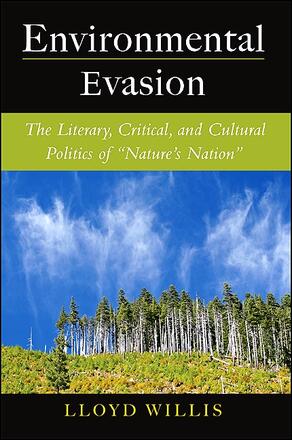
Environmental Evasion
The Literary, Critical, and Cultural Politics of "Nature's Nation"
Alternative formats available from:
Brings ecocriticism into conversation with critical American studies approaches to literary canon formation.
Description
How do we reconcile the abstract reverence for the natural world central to American literary history, beginning with Ralph Waldo Emerson's "Nature," with over a century and a half of widespread environmental destruction? Environmental Evasion examines the environmental implications of literary and cultural productions by writers from James Femimore Cooper and Henry Wadsworth Longfellow to Willa Cather, John Steinbeck, Ernest Hemingway, and Zora Neale Hurston. Lloyd Willis provocatively argues that the environmentalist outlooks by Cooper and Longfellow were eclipsed by Ralph Waldo Emerson's abstract, imperialist vision of nature. He demonstrates how many 20th century American writers have taken the Emersonian approach, participating in a silent but extremely powerful form of evasive environmental politics in the ways in which they write about the natural world. Attentive to the inherent political dimensions of all texts, Environmental Evasion insists on the relevance of environmental history and politics to New Americanist approaches to the literary canon.
Lloyd Willis is Assistant Professor of English at Lander University.